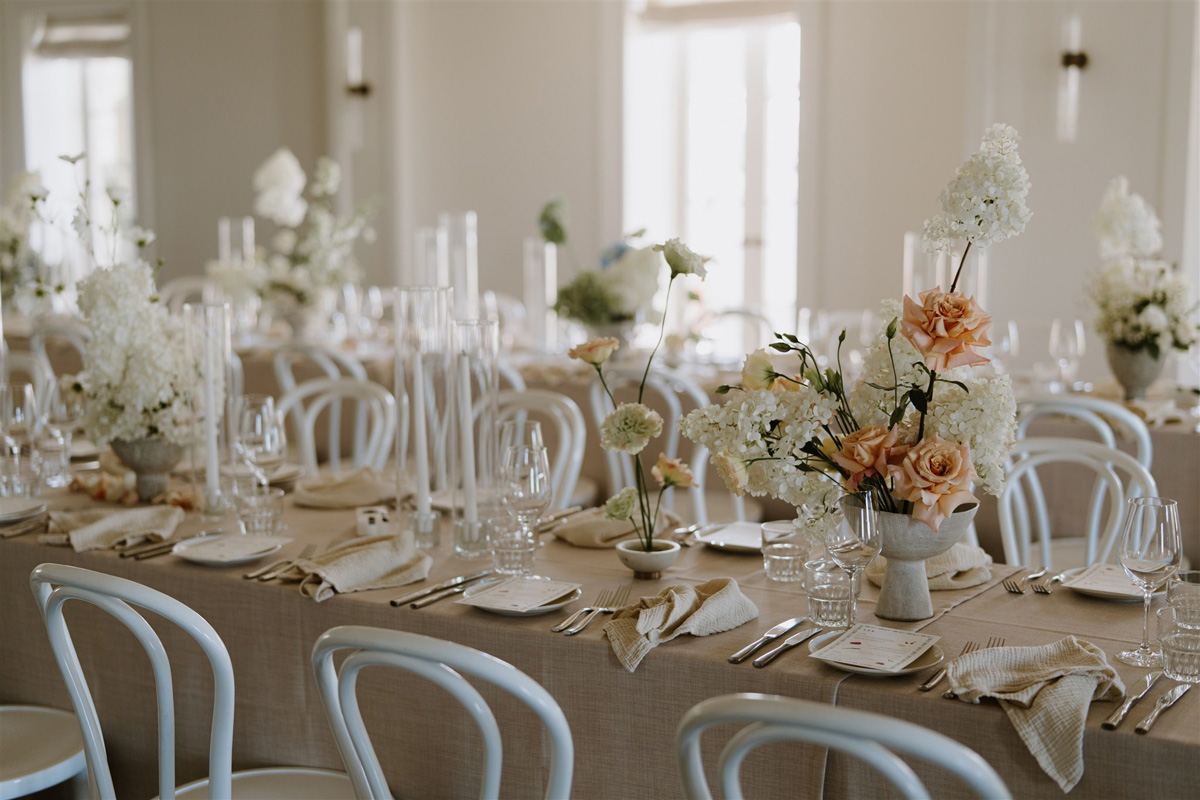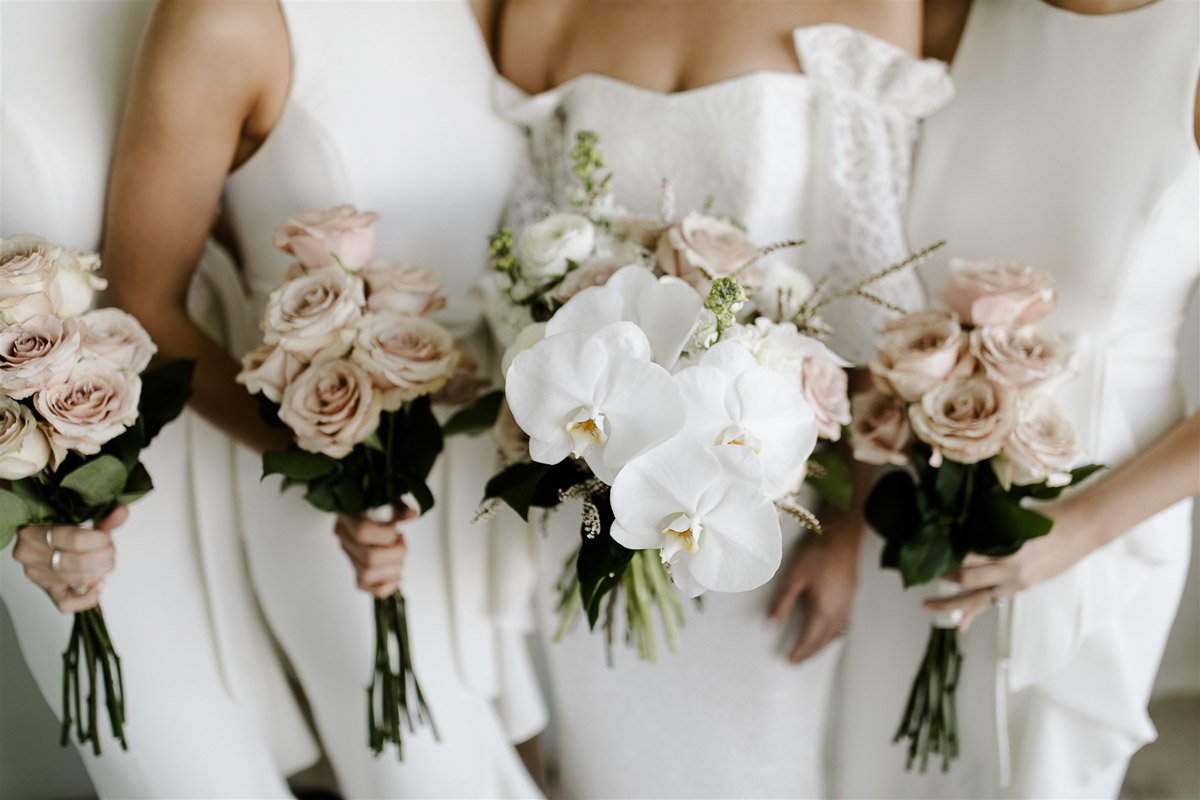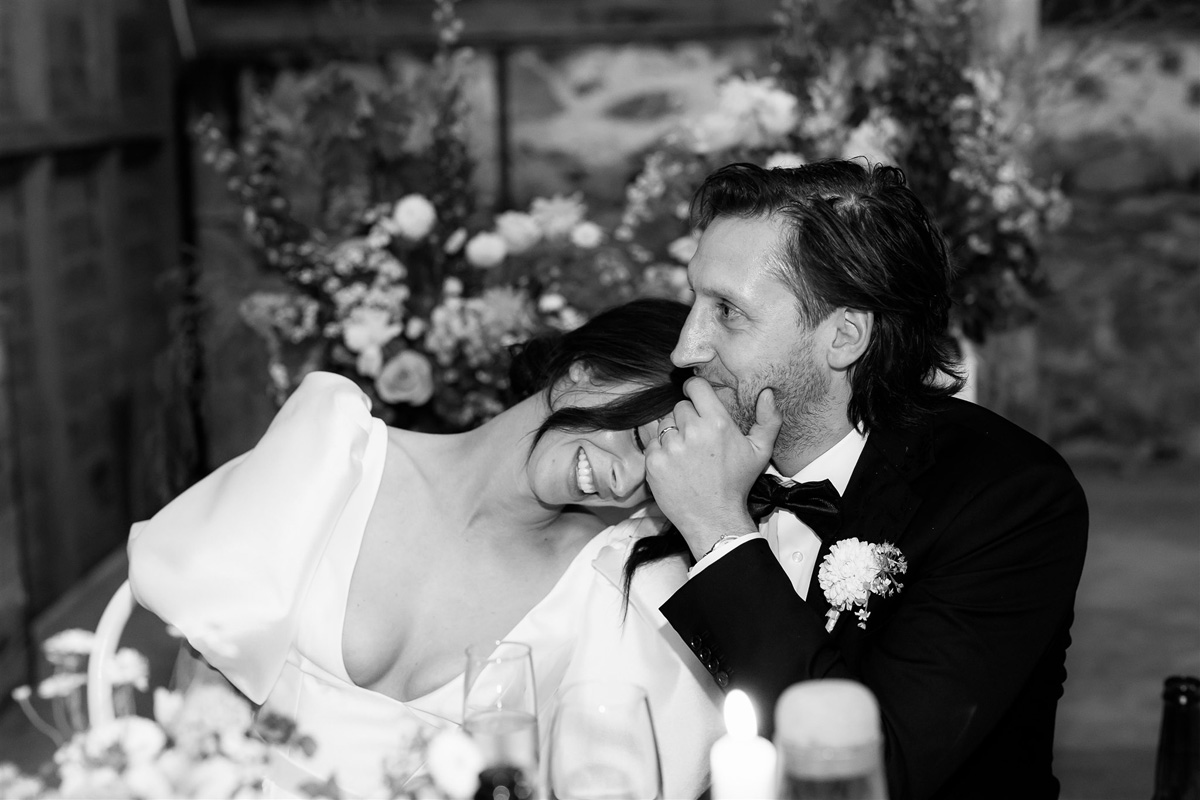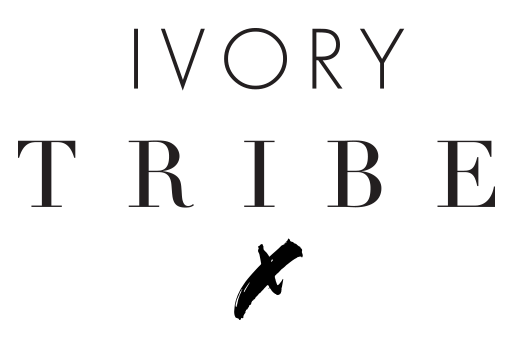Top tips for setting your wedding budget.

Photo: Elsa Campbell Photography
When wedding planning it’s easy to be swept up in the planning of your styling, going ga-ga over the glamorous gowns you’ve saved on Instagram, swooning over stationery suites and the darling details that will elevate your day to the next level. We get it!
But a very practical consideration you must take into account is the good old wedding budget – the bane of most couples’ existence.
Dealing with dollars is stressful, but something that must be done. Here we uncover how to set your wedding budget, the important factors that will make it all viable and importantly – how to stick to it.

Photo: George Bowden
1: NUMBER CRUNCHING
It’s important to be realistic when it comes to your personal finances and setting your wedding budget. Work together to understand what you can comfortably afford to invest in your wedding and ensure you’re both happy with the figure you come to. Sit down with your partner, with no distractions and here are some places to start when figuring it all out;
- Before you start, each of you should know what you earn and compile a list of all your current living expenses (mortgage, rent, groceries, insurances etc), reaching a total figure.
- based on your average monthly income, how much can realistically save each month to go towards your wedding?
- will anybody else be contributing to your wedding? If so, how much?
- do you have any current savings you’d both like to put towards the wedding?
This will start to give you a ballpark idea of what you want to spend on a wedding and how long it will take to save for it. Be it a wedding that costs $3,000, $20,000 or $70,000, you can begin to determine timelines around this.
2: GUEST LIST
If you have an idea of what you’d like to spend it is good to start thinking about the number of guests you’d like to share in your day. Many weddings expenses are based around guest number. Your guest numbers determine the size of the venue needed, the amount of food and drink required and as such, a ‘per-person’ cost. Also, when it comes to things like invitations, tableware, wedding favours, tables and seating, keep in mind that you will need to factor in each guest. If you’re looking to cut costs, being strategic around your guest list and number of attendees is one way to do this.

Photo by House of Lucie
3: RESEARCH
Go through and research all the costs you can for your day. Obtain quotes from wedding suppliers, delve deeper into services and ask if there are any other costs you might need to factor in (ie is a wedding rehearsal an additional cost, will the florist charge to pack down, is there a travel fee for your photographer?). Put all of these costs into a spreadsheet and start to tally them up.
When looking at suppliers, be mindful that as with anything, costs may vary. Consider the experience of those you’re looking to engage, the work involved in executing your vision and the time and skill required to ensure they meet your expectations.
4: NON-NEGOTIABLES
There are often a few non-negotiable when it comes to costs on your wedding day, and those will be entirely up to you as a couple. It could be that to-die-for dress you’ve always wanted, the fabulous photographer you know will take sensational snaps or the entertainment that will have your guests up and dancing all night long. Whatever it is, set your non-negotiables early and spend your money in these areas, looking to make savings elsewhere.

Photo: Lost In Love Photography
5: REALITY CHECK AND KEEPING TRACK
You’ve crunched the numbers, dealt with guests lists, set costs around what is essential and also done your supplier research, so, does your budget breakdown match the actual cost of your wedding?
Once you’ve worked out if your estimated budget and your ideal wedding are close in dollars, it’s time to keep track of your spending.
Keeping track will allow you to see if you’re overspending or have room to move with your money. What’s the best way to keep an eye on your budget business? We have done the hard work for you with our wedding budget downloadable that allows you to look after your dollars every step of the way Designed in a formulated spreadsheet to access at any time, you can estimate what you wish to budget for each service, vendor and aspect of your planning, against the actual cost while calculating what you’ve paid to date and what outstanding costs remain.
6: STICK TO YOUR GUNS
Once you agree to a budget and set it, it’s so important to try and stick to it, trust us when we say this can only save potential future money woes down the track. Keep each other accountable and check in on your wedding budget regularly – even send it on to a family member or friend who can also keep you on track. Be open in your communication with one another and know that at the end of the day, the important thing is to be married to the love of your live, not the number of dollars you spend.

Photo: Smith & Archer
Wedding planning, it’s thrilling, sometimes exhausting, potentially stress-inducing but (almost always!) so worth it. For planning products to help ease any pain, you can visit our e-store of products here.



